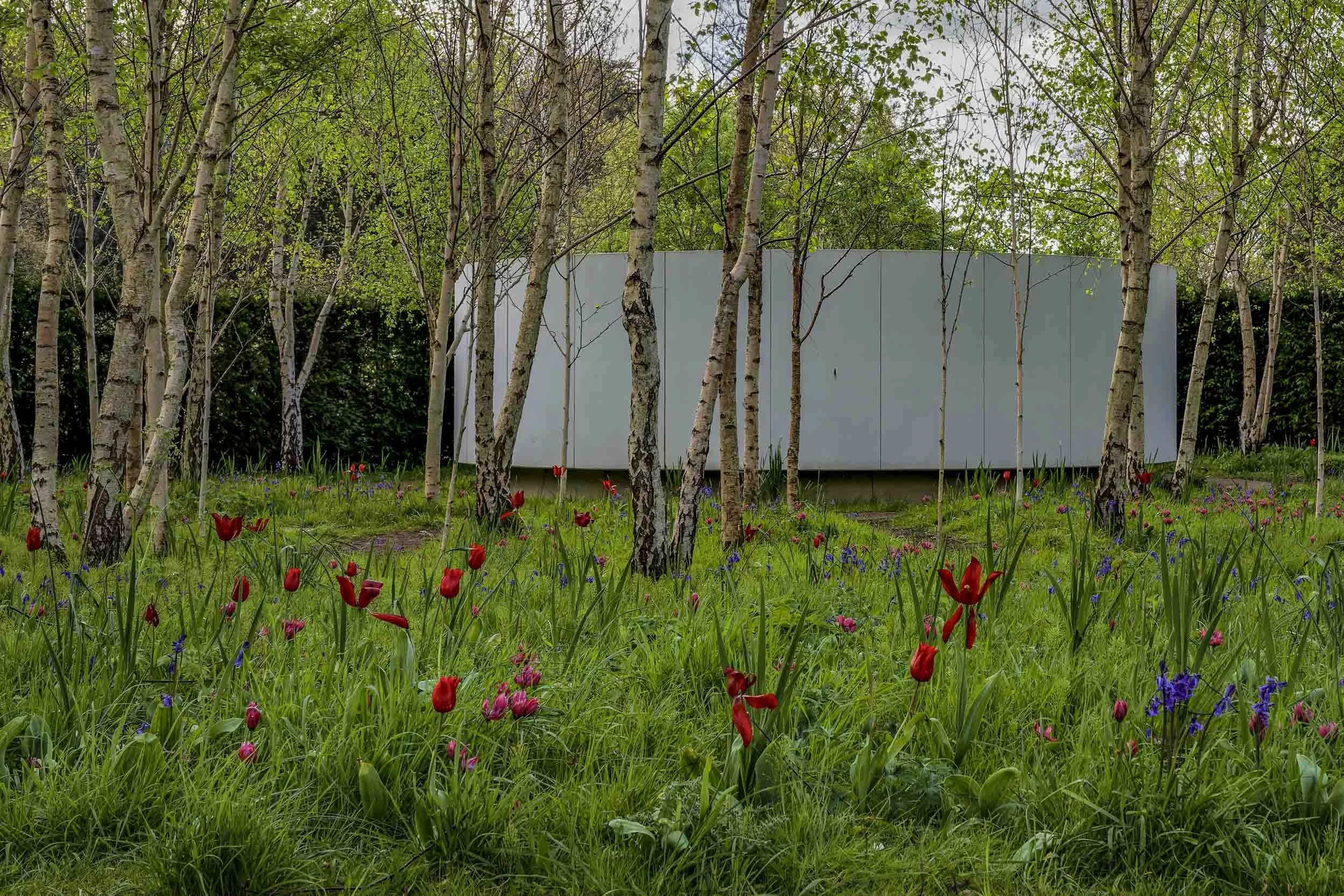The Poustinia
The Poustinia in the Bishop’s Palace Gardens
The Garden of Reflection was one of the last areas to be developed within the Bishop’s Palace gardens. A former bishop, Peter Price, wanted there to be a space dedicated to quiet reflection and contemplation – a place where people would find rest and calm. The garden was completed and formally opened just days before the bishop’s retirement in 2013.
The main part of the garden comprises this semi-wild area of birch trees with grasses, and wildflowers planted amongst them – and of course the red tulips that bloom here in spring. The centrepiece is this gleaming white concrete circular structure which is called a ‘poustinia’. The word poustina has its origin in the Russian word for desert. Within Eastern Christianity there was a tradition of having small sparsely furnished cabins, often in the woods, where a person would go to pray and fast in the presence of God. The idea of the poustinia was introduced in the West by a woman called Catherine Doherty, who fled Russia to live in Canada.
The design for this garden explicitly reflects some important elements of the contemplative experience, at least of a conducive physical environment: an enclosed space, a forest clearing, a sense of being away from people, a sense of mystery, fascination, and surprise together with a reduction of stimuli.
However, the poustinia is not just a physical space because these features invite us into a deeper inner experience of the heart, for as Catherine Doherty writes, “to go into the poustinia means to listen to God. It means entering into kenosis – the emptying of oneself to be filled with God’s grace and love.
When I first saw this place three years ago when we were thinking about moving to Wells, I fell in love with . We also realised that we had met the designer, Stephen Broadbent, and so knew something of the spirit in which he approached his work. As I entered this space, I had a profound experience of being enfolded and at peace, a sense of arriving home, and in response to that experience wrote this.
Poustinia (after ‘The Peace of Wild Things’ by Wendell Berry)
When a sense of hopelessness pervades and I feel increasing tension in my shoulders at the thought of how things are going I go and sit down where the wells spring up beneath the deep water and swans swim. I come into the peace of the Poustinia where I am welcomed as I am. I come into the presence of stillness and I behold the spaciousness of open sky above for a time I rest and I am held and am at peace.
©Helen Jelfs


